The Munich massacre at the 1972 Olympics was one of the most shocking terror attacks against Israelis of all time.
Early in the morning of Monday, September 4, eight Palestinians from the Black September terror group snuck into the Munich Olympic village dressed in tracksuits. Once inside, they broke into the two apartments used by the Israeli team at Connollystrasse 31.
Two of the Israelis, Moshe Weinberg and Yossi Romano were killed when they fought back against the terrorists. Black September then demanded Israel release 234 Palestinian prisoners and the Japanese Red Army’s Kozo Okamato (the only terrorist who survived the Lod Airport massacre earlier that year). The terrorists also demanded the release of Red Army Faction founders Andreas Baader and Ulrike Meinhof, who were incarcerated in West Germany.
Related reading: What is Terrorism and Why Does Its Definition Matter?
Prelude to the Munich Massacre
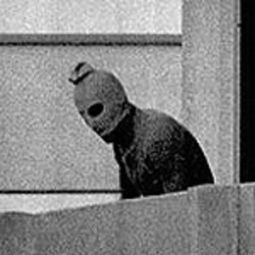
German negotiators leaned towards giving in to the terrorists’ demands, but Israeli officials took a harder line, insisting that capitulation would embolden more terror. Said prime minister Golda Meir, “If we should give in, then no Israeli anywhere in the world can feel that his life is safe.”
The games continued for 12 hours after the murders of Weinberg and Romano. The International Olympic Committee (IOC) suspended the games in the face of mounting pressure. (Competition resumed 34 hours later.)
West German police sought to rescue the hostages by ambushing the terrorists at the nearby Furstenfeldbruck airbase. But they were woefully ill-prepared and the plan was poorly executed. During the ensuing shootout, the nine helpless Israelis divided in two helicopters were murdered by Palestinian gunfire and grenades. Hence the name, Munich massacre.
Five terrorists and one German police officer, Anton Fliegerbauer, were killed in the shootout.
Join the fight for Israel’s fair coverage in the news
Munich Massacre Aftermath
The dead terrorists — identified as Yusuf Nazzal, Afif Ahmed Hamid, Khalid Jawad, Ahmed Chic Thaa, and their commander, Luttif Afif — were buried in Libya with a hero’s funeral.
A little more than one month after the Munich massacre, Black September sympathizers secured the release of the remaining three terrorists by hijacking Lufthansa Flight 615. Two of the three surviving gunmen, Mohammed Safady and Adnan Al-Gashey, were allegedly killed by Mossad as part of “Operation Wrath of God.” The third, Jamal Al-Gashey, was known to be alive as of 1999, hiding in North Africa or in Syria, fearing Israeli retribution for his role in the Munich massacre.
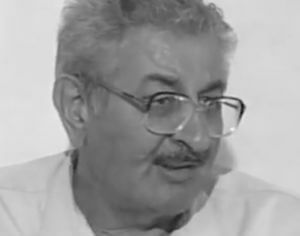
Following the 2005 release of Steven Spielberg’s movie, Munich, the attack’s mastermind, Black September leader Mohammad Daoud Oudeh (a.k.a. Abu Daoud) told Sports Illustrated that the attack was financed by Mahmoud Abbas. Daoud died of kidney failure in Damascus in 2010.
Five of the Munich massacre martyrs, Andre Spitzer, Amitzur Shapira, Kehat Shorr, Eliezer Halfin, and Mark Slavin were buried together in Tel Aviv’s Kiryat Shaul Cemetery. Another fallen athlete, dual US-Israeli citizen David Berger, was buried in his hometown of Cleveland, where a sculpture of broken Olympic rings was designated as a national memorial by the National Parks Service.
Widows of the murdered athletes have campaigned for official IOC commemorations at subsequent games such as a minute of silence during the opening ceremony. Olympic officials repeatedly rejected the idea saying such tributes would inject politics into the games. Matters came to a head four days before the 2012 London games — the fortieth anniversary of the Munich massacre — when, during a lightly-attended ceremony honoring the Olympic truce, IOC President Jacques Rogge held a spontaneous minute of silence for the Israelis. The widows denounced Rogge for “trying to do the bare minimum.”
Related reading: Terror Victims: Every Day is Remembrance Day
In Memoriam
With the passage of time, the individuality of each of the 11 has faded into a collective group of Munich massacre victims. But for the generation that didn’t grow up with first-hand memories of the shock and horror of the Munich massacre, it’s worth reminding ourselves that Moshe Weinberg, Yossi Romano, Ze’ev Friedman, David Berger, Yakov Springer, Eliezer Halfin, Yossef Gutfreund, Kehat Shorr, Mark Slavin, Andre Spitzer, and Amitzur Shapira were all accomplished athletes who followed their own individual paths to the top of their sports. We can only imagine how they might have impacted the sporting world had they not been cruelly cut down.
Here is a brief collection of information about the victims:
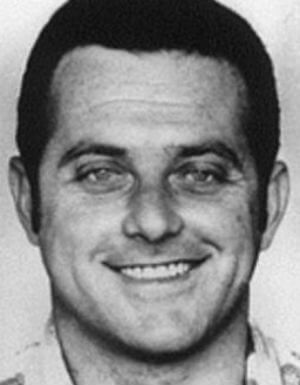
Moshe Weinberg
National wrestling coach
Born: Sept. 19, 1939, Haifa, Mandatory Palestine
Killed: Sept 5, 1972 during initial break-in.
Survived by his wife, Mimi, and one son.
As the terrorists broke into the apartment, Weinberg was confronted by the group’s leader, Luttif Afif. After unsuccessfully attacking Afif with a fruit knife, Weinberg was shot through the cheek and ordered by the terrorists at gunpoint to show them where the other Israeli athletes were. Weinberg led the terrorists past Apartment 2, which housed the fencers, shooters and track athletes, and instead took them to Apartment 3, which housed Israel’s weightlifters and wrestlers.
Weinberg presumably hoped the stronger teammates would overpower the terrorists but they were taken by surprise in their sleep.
While the hostages were being marched back to Apartment 1, Weinberg again attacked the terrorists, knocking Mohammed Safady, unconscious, which allowed wrestler Gad Tsobari, to escape. The terrorists fatally shot Weinberg and threw his body into the street.
Years later, Weinberg’s actor son, Guri, portrayed his father in Steven Spielberg’s 2005 movie Munich.
Weinberg is buried in Holon.
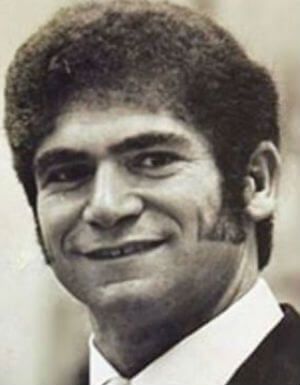
Yosef “Yossi” Romano
Weightlifter
Born: April 15, 1940, Benghazi, Libya
Killed: Sept 5, 1972 during initial break-in.
Survived by wife, Ilana and three daughters.
Romano’s family moved to Mandatory Palestine from Libya when he was six years old. An interior decorator by profession.
Romano was the Israeli weightlifting champion in the light and middle-weight divisions for nine years. Romano competed in the middleweight weightlifting division in the 1972 Olympics, but was unable to complete one of his lifts due to a ruptured knee tendon and was due to fly home the next day for an operation.
When the terrorists entered Apartment 3, Romano managed to slash Afif Ahmed Hamid with a knife and grab his AK-47 before being shot to death. Subsequent reports said Romano was tortured by the terrorists before being killed, and his bloodied corpse was left at the feet of his teammates all day as a warning.
After the death of her son, Romano’s mother committed suicide. Several years later his brother did as well. It was Romano’s widow, Ilana, along with Ankie Spitzer, who led the fight for the Olympics to hold a moment of silence.
Romano is buried in Herzliya.
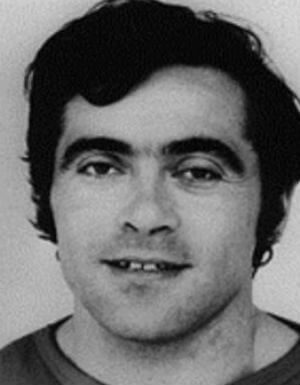
Ze’ev Friedman
Weightlifter
Born: June 10, 1944, Prokopyevsk, Soviet Union
Killed: Sept. 6, 1972, during failed rescue attempt.
Survived by his parents and sister.
Friedman’s family moved to Israel from Poland in 1960. He was the Israeli Flyweight Champion for 7 years and in 1969 he was ranked 7th at the World Championships in Warsaw. At the 1971 Manila Games, he finished in third place and at the Munich Olympics he was 12th after breaking three Israeli records and tying a fourth.
Friedman is buried in Haifa.
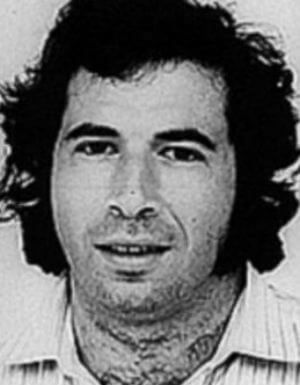
David Berger
Weightlifter
Born: May 24, 1944, Cleveland, United States of America
Killed: Sept. 6, 1972, during failed rescue attempt.
Despite earning a bachelors degree in psychology at Tulane University and an MBA-law degree at Columbia University, Berger made time to lift weights, winning the NCAA weightlifting title in the 148-pound class and finished fourth in the 1968 US Olympic trials as a middleweight. Prior to the Munich Olympics, Berger also won a gold medal at the 1969 Maccabiah Games and a silver medal at the 1971 Asian Weightlifting Championships.
While the 10 other Israeli Olympians were flown to and buried in Israel, Berger’s body was returned to the US on an Air Force jet personally ordered by president Richard Nixon.
Berger is buried in Cleveland.
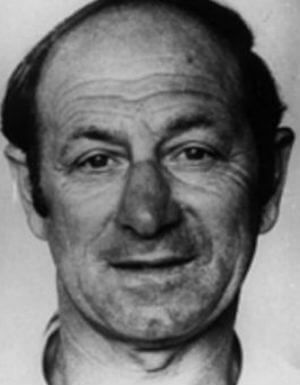
Yakov Springer
Weightlifting coach and judge
Born: June, 1921, Poland
Killed: Sept. 6, 1972, during failed rescue attempt.
Survived by wife and two children.
A Holocaust survivor who fought in the Warsaw Ghetto uprising, Springer moved to Israel in 1956. He taught physical education in Bat Yam, training hundreds of youths, and establishing a generation of champions, coaches and referees. The 1972 games were the fifth in which he served as an official judge.
Springer is buried in Holon.
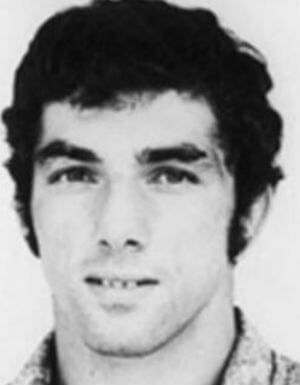
Eliezer Halfin
Wrestler
Born: June 18, 1948, Riga, Latvia
Killed: Sept. 6, 1972, during failed rescue attempt.
Survived by his parents and a sister.
A mechanic by profession, Halfin moved to Israel in 1969.
Prior to the Munich games, Halfin finished 12th in the 1971 World Championships in Bulgaria, then finished second and third in other competitions in Romania and Greece in 1971 and 1972 respectively.
Halfin is buried in Tel Aviv.
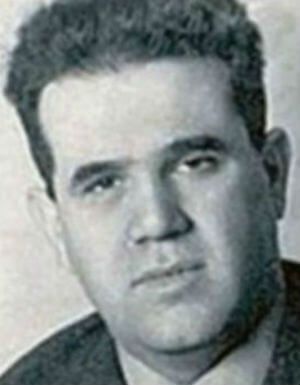
Yossef Gutfreund
Wrestling judge
Born: Dec. 20, 1931, Romania
Killed: Sept. 6, 1972, during failed rescue attempt.
Survived by a wife and two daughters.
Gutfreund was studying to become a veterinarian in Romania before taking up wrestling. Prior to the 1972 games, Gutfreund was a judge at the 1968 Olympic Games in Tokyo and the World Championships in India and Bulgaria before being invited to judge in Munich.
At around 4:30 am he heard a noise outside the door and went to investigate, thinking that it might be wrestling coach Moshe Weinberg, who had the other key to the door. He saw the door begin to open and caught a glimpse of masked men with guns on the other side. Gutfreund threw his 6-foot 3-inch, 290 pound frame against the door and screamed a warning to his fellow Israelis. Those precious few seconds allowed his roommate, weightlifting coach Tuvia Sokolsky, to smash a window and escape. In the adjacent Apartment 2, race-walker Dr. Shaul Ladany was awakened by Gutfreund’s screams and also managed to escape.
Gutfreund is buried in Jerusalem.
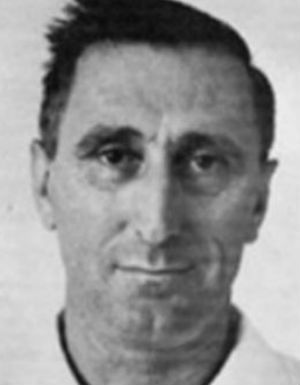
Kehat Shorr
Shooting coach
Born: Feb. 21, 1919, Romania
Survived by a wife and married daughter.
A Holocaust survivor, Shorr became a devoted marksman before moving to Israel in 1963. His professional and organizational talents caught the eye of Israeli athletic officials and by 1972, he had trained every shooter on the Israeli team.
Shorr is buried in Tel Aviv.
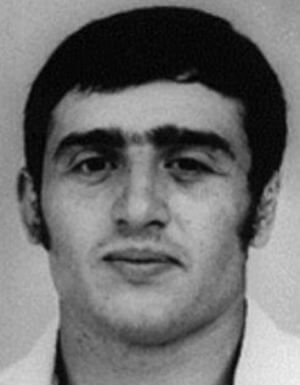
Mark Slavin
Greco-Roman wrestler
Born: Jan. 31, 1954, Minsk, Soviet Union
Killed: Sept. 6, 1972, during failed rescue attempt.
Slavin took up wrestling as a youth to defend himself from antisemitic attacks and won the Soviet Greco-Roman wrestling middleweight junior championship in 1971.
Slavin was widely viewed as Israel’s most likely medal winner. This despite the fact that Slavin was 18, participating in his first international competition, and had only moved to Israel four months before the games. He was due to make his Olympic debut the day the terrorists stormed the Olympic Village.
Slavin is buried in Tel Aviv.
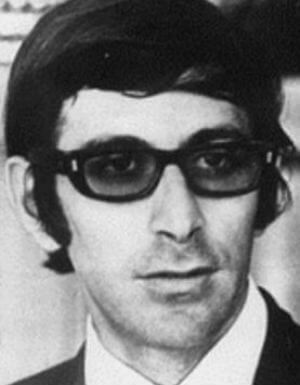
Andre Spitzer
Fencing master and coach
Born: July 4, 1945, Timisoara, Romania
Killed: Sept. 6, 1972, during failed rescue attempt.
Survived by his wife, Ankie, and a daughter.
The children of Holocaust survivors, Spitzer’s family moved to Israel when he was a boy. He served in the Israeli Air Force and learned fencing at Israel’s National Sport Academy. He continued his fencing studies in the Netherlands, where he met his wife, Ankie. In 1971, the Spitzers returned to Israel, where Andre became the country’s top fencing instructor.
It was Spitzer’s widow, Ankie, along with Ilana Romano, who led the fight for the Olympics to hold a moment of silence.
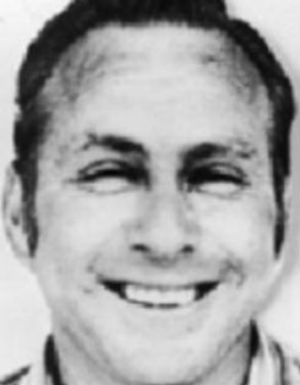
Amitzur Shapira
Track and field coach
Born: July 9, 1932, Tel Aviv, Mandatory Palestine
Killed: Sept. 6, 1972, during failed rescue attempt.
Shapira was one of the outstanding sprinters in the 1950s and in 1952 earned a degree to be a physical education teacher while also becoming a track and field coach. Shapira dedicated his time and efforts to sport and helped guide the younger generation of stars in track and field.
For many years he was also a teacher and educator at the Wingate Institute’s Beit Midrash.
Image of Oudeh via YouTube/AP Archive;
Before you comment on this article, please note our Comments Policy. Any comments deemed to be in breach of the policy will be removed at the editor’s discretion.

